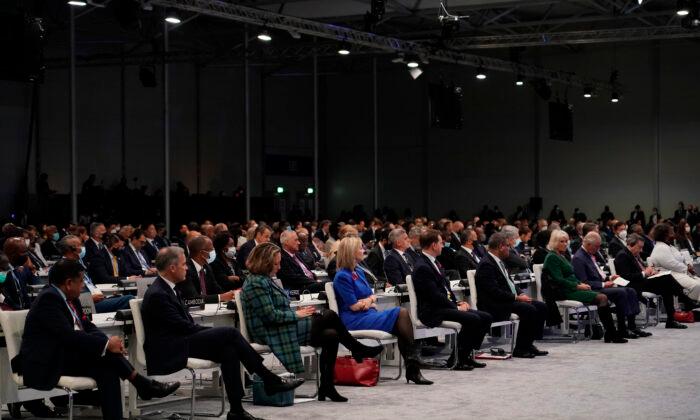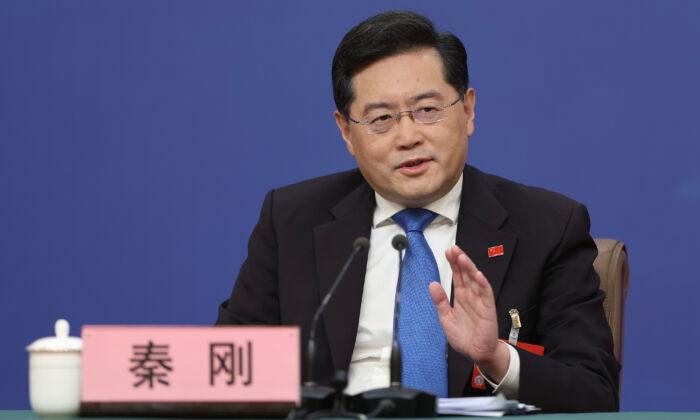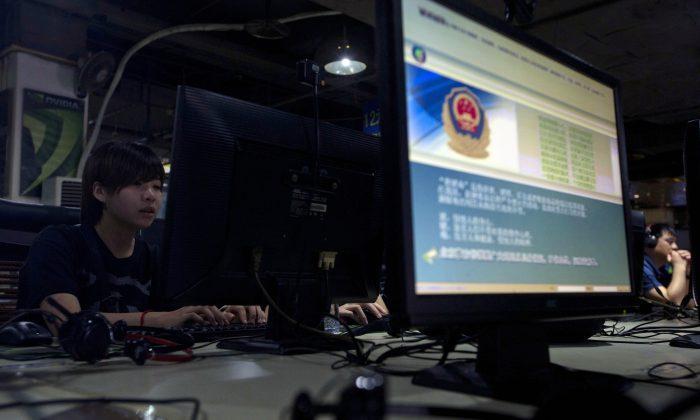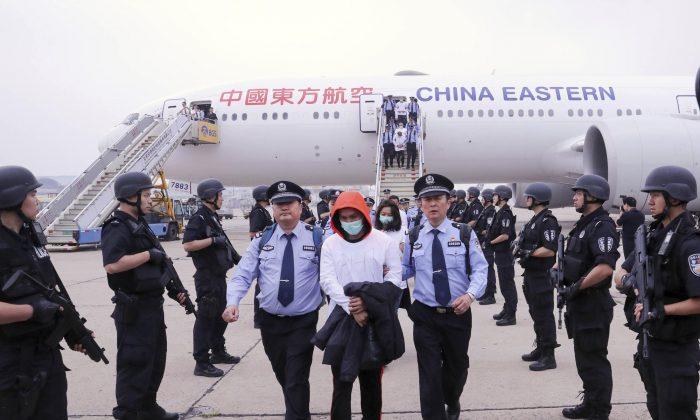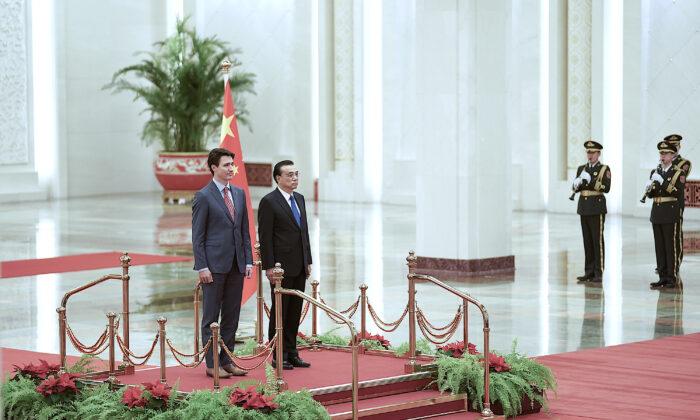China’s refusal to fully cooperate in fighting climate change could indicate that it is hiding the true state of its economy.
In Glasgow, where the United Nations Climate Change Conference (COP26) is currently taking place from Oct. 31 to Nov. 12, China’s behavior and its lack of transparency shows that Beijing cannot be trusted. The Chinese regime refuses to cooperate because it would be required to reveal true data on the state of its economy—which is a concern to us all.
Chinese leader Xi Jinping’s absence from the summit has already been widely reported. Now senior negotiators are saying something far worse and more serious: China is sabotaging any ability to reach a deal to fight climate change.
It has been known for some time that the Chinese Communist Party (CCP) is willing to use climate change as a bargaining tool in getting what it wants or getting away with breaking international law and committing human rights violations, or atrocities. The message from CCP leaders to the international community has been clear: be nice to us, or we won’t play our part in stopping global warming.
China plans to continue mining and burning coal until 2025, and to reach carbon neutrality by 2060. Beijing is refusing to provide transparent reporting on how it is working toward the agreed-upon goals and how China’s emissions change over time. The CCP is objecting to the idea that it would be mandated to actually tell the truth.
It has been clear that the CCP’s prior commitments mean nothing at all, and if growth targets are jeopardized, such commitments go out the door—just look at the recent resumption in using coal power or the push to develop new coal power plants. The year 2020 saw a record in the approval of new coal power, more than the three years preceding it combined.
This should surprise no one. A key issue with the U.S.-China trade deal, and part of the reason why it fell through, was the United States insisting that China had to provide a transparent report on fulfilling the trade terms; and if the terms were violated, there would be a penalty. The Chinese regime doesn’t like being forced to comply, even to its own commitments. This is the same reason Beijing has, to the surprise of some, ratified the Convention Against Torture, yet objected to the condition that puts into place a monitoring body. And as a result, the U.N. has no right to use that body to monitor if, or how, China is actually following the Convention—which makes Beijing’s commitment meaningless.
Without transparent reporting, any promises that China makes to COP26, or the fight against climate change, will be broken whenever it’s convenient.
Of equal interest is the fact that China seems motivated to block mandated and transparent reporting because it would require releasing fuller data on the state of its economy. Emission targets are calculated based on economic activity or GDP. To measure a country’s efforts at reaching agreed upon targets would thus require Beijing to share more transparent economic data. But the CCP doesn’t want the world to see the true state of China’s economy. The CCP believes it can effectively manage the economic downturn by concealing information in order to control speculation that could further damage the already fragile economic state.
China’s recent economic woes and a housing bubble received a lot of media attention around the world, but the information is blacked out in the country. In reality, signs of economic deterioration go back to at least 2017. The economic crisis threatens the CCP’s existence and its legitimacy to hold power. Thus, the ability to control information about China’s economy is paramount.
The CCP’s obsession with power and Xi Jinping’s personal paranoia—where he sees threats everywhere—now risks undermining international cooperation to manage climate change.
